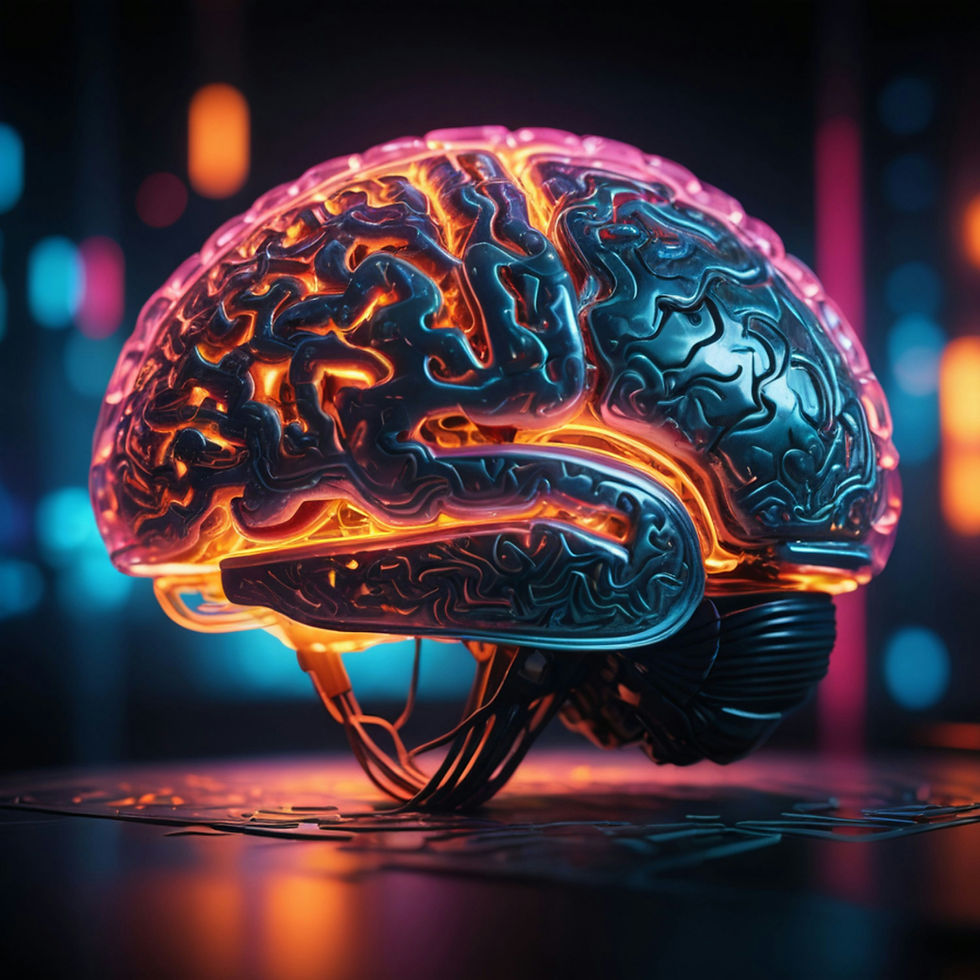CRISPR Technology: A Science Fiction Reality That’s Now Knocking on Our Door
- Monica Chase

- Sep 9, 2024
- 3 min read
Jailed for Playing God: The Scientist Who’s Back to Rewrite Our DNA

We’ve all seen it—the moment when science fiction steps into reality and forces us to ask questions we never thought we’d need to answer. CRISPR, a powerful tool that allows scientists to edit genes, was once the stuff of speculative fiction. But now, it’s here, and it’s changing the way we think about the future of humanity.
So, what happens when this technology is pushed beyond the limits of ethics? Are we really ready for the consequences?
Recently, the case of He Jiankui, the Chinese scientist who shocked the world by creating the first genetically edited babies, resurfaced. After serving his prison sentence, he’s back in the lab—this time, with a new goal: using CRISPR to treat genetic diseases like Alzheimer’s. But his return brings us back to that ever-present question: just because we can edit human genes, does that mean we should?
The Story of He Jiankui: Controversy and Consequences
Back in 2018, He Jiankui made global headlines when he announced the birth of twin girls, Lulu and Nana, whose DNA he’d altered using CRISPR technology. His goal was to make them immune to HIV. But in his race to be first, He bypassed ethics review boards and dismissed scientific safeguards. The world wasn’t ready for what he’d done, and honestly, neither was he.
The backlash was swift and brutal. Scientists and ethicists condemned the work, and He was sentenced to three years in prison. But fast forward to today—he’s back at it, focusing on gene editing for diseases like Alzheimer’s and muscular dystrophy.
The question is, can we trust this technology when it’s in hands so eager to push the limits? Or are we diving headfirst into something we barely understand?
CRISPR Technology's Double-Edged Sword: Treatment vs. Enhancement
CRISPR is a scientific marvel. The ability to edit genes holds the promise of curing devastating diseases that cause unimaginable suffering. And honestly, that’s exciting. Imagine a future where Alzheimer's, cancer, and muscular dystrophy are part of our medical history, not our present.
But then there’s the flip side. What happens when that same technology is used to “improve” humanity? To enhance intelligence, strength, or even appearance? It sounds like science fiction, but this isn’t Star Trek—it’s our real world now.
In Broken Code: The Genesis of Rebellion, I explored the very world we seem to be stepping into. My protagonist, Harper Brasfield, faces a society where CRISPR-like tech is no longer about helping people but controlling them. As I see news stories like Jiankui’s, I’m reminded how speculative fiction sometimes feels like a warning rather than just a “what if.”
Ethics at the Crossroads: Are We Ready for CRISPR?
Here’s where things get sticky, though. Even if He’s now focused on curing diseases instead of creating “designer babies,” the ethical swamp is still very real.
Should we embrace this technology to prevent suffering, knowing the risks that come with it? And if we do, where does it stop? Parents choosing their child’s eye color today… and tomorrow, their IQ?
These questions fascinate me as a writer and, frankly, as a human watching all of this unfold in real-time. In The Helix Chronicles, Harper Brasfield confronts the same ethical dilemmas that we’re now debating in labs and boardrooms worldwide.
.
Why Fiction Can Help Us Make Sense of Reality
If you’ve ever wondered why speculative fiction feels so close to home these days, this is why. Fiction gives us the perfect playground to ask the big, uncomfortable questions without needing to solve the world's problems right this second. (Though if I could fix it all, I'd probably still be in my PJs figuring out how CRISPR works for my own coffee addiction.)
And that’s exactly why I write what I write. We’re at a point in history where our stories can help us work through the tangled mess of real-world tech, ethics, and humanity. It’s an incredible time to be both a writer and a reader.
Join the Conversation: What’s Your Take?
So, what do you think? Should we lean into this kind of tech or keep it locked behind ethical barriers? I’d love to hear your take—drop a comment below, and let’s chat!
And if these questions fascinate you as much as they do me, I invite you to explore Broken Code—a speculative fiction novel that tackles these dilemmas in a world just a few steps ahead of our own. Sometimes, fiction is the perfect place to wrestle with real-world challenges before they’re fully upon us.
Until next time, I’ll see you in the bookstores.
Monica
Loved this post? Share it with others and let’s keep the conversation going about the future of CRISPR and its impact on humanity!


Comments